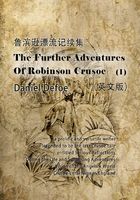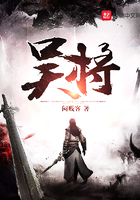A Whole New Ball Game
Leadership and the Informal Organization
To people nurtured in the business school environment who came of age in traditional Western organizations, the world of the informal organization appears strange indeed. It is counterintuitive and somehow wrong. Even though these same people may admit privately that not much gets done in their organization by following the old organizational chart, this admission often takes on the aspect of a secret confession—for everybody knows that position is power and that the balance sheet rules. That is what it says in all the books, and of course they must be right.
As a matter of fact, the shadow world of the informal organization is often treated as the enemy. After all, it operates like the underground economy—off the books and beyond the control of those who think (or hope) that they are in control. Given the training and predisposition of many managers, the predictable, primary response to this strange beast is either to stamp it out or to bring it under control. Informal communication, for example, is presumed to be bad, therefore the formal reporting structure must be adhered to and enforced. The anticipated alternative is chaos.
If control fails, the next strategy is to downplay the power of the off-the-books way of doing business. So, when the academicians and pundits write books on organizations, 99.9 percent (a very rough figure) of what they say relates to the observable control functions. The informal organization, if mentioned at all, appears only in a footnote.
The last strategy is to ignore the shadow world completely. By pretending that the shadow world just doesn't exist, the notion of formal control is not disturbed.
Given responses such as these, it is not surprising that little is known (officially) about the informal organization, and that little use is made of its possible virtues. In more predictable days, when the formal structures apparently worked quite well, the aforementioned treatment of the informal side of things was not only understandable but probably justified. Things have changed, however, and it is time to take a closer look at what is going on beneath the official surface of our organizations—not with the idea of stamping out this strange presence, but rather to learn how it works and how to use it more effectively.
As a matter of fact, there is a considerable body of experience with the informal side of things, developed over the years by people who were denied access to the formal structures of power. These people include all disenfranchised groups, particularly minorities and women. They also include people who have chosen to work “off the books,” as it were, in the world of volun-teerism, where the coin of the realm is usually not money and position power, but passion, commitment, and purpose.
New Rules for a New Ball Game
The world of the informal organization is a whole new ball game. What makes it difficult to adjust to is that it rather looks like the old ball game. After all, it is the same world, the same organizations, and the same products and services. But appearances can be deceiving.
The relationship between the formal and informal organization, and the difficulties created by the apparent sameness of the
THE NEW RULES
Whoever has the ball is leader.
Never oppose force with force.
Play the whole field.
Cooperate in order to compete.
Honor the opposition.
two are not unlike the relationship between the word football used in the United States and the word football used elsewhere. In different contexts the same word has radically different meanings. In the United States, football is football, and Americans know that what everybody else plays is “only” soccer. The rest of the world has a rather different understanding.
The real difficulty for Americans comes about not just because of the differences but also because of the similarities in these games. They have the same name, and the playing field has the same general size and configuration, roughly one hundred yards long with goals at both ends. The fans and the teams sit in the same places along the sides, and at a quick glance the pattern of play seems rather similar. Of course, each game's ball does look a little odd to the fans of the other game. However, were you to get into a soccer game with the rules of football still in mind, you would be in “deep tapioca” for sure.
Take the whole question of leadership and who's in charge. In American football, command is exercised from the sidelines by the coach, who transmits the plays to the quarterback via the tight end. How different it is with soccer: whoever has the ball is leader.
There is a strange corollary to this first leadership rule of soccer: ball hogs die. It is absolutely impossible for one person to lead with the ball all the time. When you are playing a nonstop, forty-minute half, human physiology, no matter what the level of will and determination, simply will not permit a continuous effort on the part of a single person. And should some person be crazy enough to try such a Herculean effort, the net result will be not only total exhaustion for the individual but also defeat for the team. So much for having one powerful leader.
Speaking of power, much official wisdom suggests that when some obstacle presents itself, the best, and some would say the only, way to victory is to concentrate all available forces and charge through. Strategy like that may work in American football, but in soccer it is largely ineffective and generally subject to a penalty call. The basic rule is, never oppose force with force. This does not mean that speed, endurance, and best effort are of no account, but simply that it is much smarter to create a strategy that plays to the weak points and depends on speed and deception for effectiveness.
To mount such a nonforce strategy, several other rules must be observed. The first is play the whole field. It is, of course, tempting to concentrate only on that which is in front of you. After all, everybody can clearly see the goal at the end of the field. But doing that means that there is only one right way to go—ahead. If the way is blocked, however, and one is observing the cardinal principle of not opposing force with force, it is often necessary to move backward in order to make progress. Thereupon arises the strange phenomenon of watching a team kick the ball back into its own territory. The intuitive American response is to yell, “Stop, the goal lies ahead!” True, but to get there one has to take maximum advantage of available space in order to reset the dynamics of play and create an open space that reveals the path.
The requirement to sense the dynamics of play in order to be able to change them brings to light yet another apparently counterintuitive principle: it is necessary to cooperate in order to compete. One cannot stand removed in abstract isolation and effectively monitor the dynamics of play. The game's dynamics are more like a dance in which the partners must mirror one another's moves before anything else can happen.
Along with cooperation comes one more strange element of relatedness: honor the opposition. Somewhere along the line it became popular to equate the desire to compete and win with high levels of hostility and anger. It is true that occasionally these emotions can produce momentary bursts of superhuman effort, but they are momentary, and for a game of any duration, this is simply insufficient.
The Big Ball Game
Analogies of all sorts, and sports analogies in particular, are useful only to a point. This short excursion into the world of soccer and football has made clearer some of the ways in which the informal organizational world differs from the formal organizational world, but the analogy is limited. Games, by whatever name, are played under narrowly circumscribed conditions: on a field of a certain size, with a set number of players, for an agreed-upon length of time. Obviously the world at large doesn't work that way. In the Big Ball Game, the number of players, the size of the field, and the length of play are constantly changing. Indeed, the object of play (what it means to win) is not only up for discussion, it is often several different things at the same time. Anything can change at any time, and usually does. Under the circumstances, it is not surprising that we often make the effort to cut the odds in our favor, and to define, albeit arbitrarily, some smaller subset of that total world in which we can set the rules and thereby gain control. Indeed, that is exactly what we have done with all our games and our businesses. To date, this strategy has been reasonably successful, but its success should not blind us to the fact that it is indeed a strategy, and an arbitrary one at that. We confuse, at our peril, the world of our imagination and the world as it is.
As much as we might wish it were not so, the simple truth of the matter is, none of us ultimately sets the rules. This is true for the man in the street as well as for those elevated individuals we sometimes refer to as our leaders.
For understandable reasons it is comforting to ascribe to “the Great Leader” the power we don't have—believing, if only for the moment, that although we cannot control our destiny, he or she can control it for us. Truly great leaders understand that ascription of power to be a fond hope, and that they, along with everybody else, are basically out of control. Sometimes, of course, the so-called leaders believe their own press, at which point we are all truly in trouble.
At this juncture, we can certainly benefit from the experience of those who by force of circumstance or choice have always known that they live in a world they do not and cannot control. For lifetimes and centuries, they have had to play by somebody else's rules.














